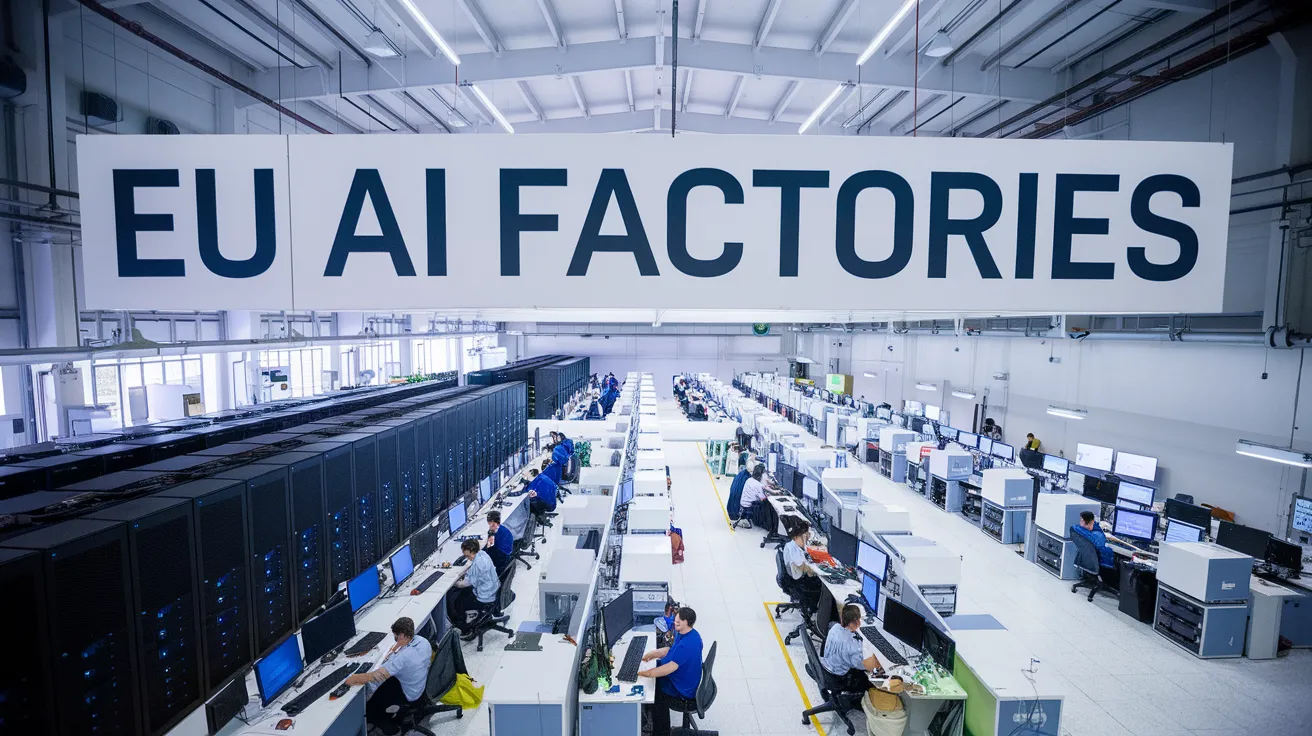EU Invests €1.5 Billion in AI Factories

The European Commission has recently announced an ambitious investment of €1.5 billion to develop seven new or upgraded AI factories throughout Europe. These factories are intended to enhance the role of artificial intelligence in various sectors of the EU economy, catering specifically to small businesses and promoting research initiatives within the academic community.
The planned facilities will be equipped with state-of-the-art supercomputers, cutting-edge general-purpose AI models, and specialized programming tools. These advancements are expected to empower organizations to develop, test, and evaluate new algorithms, pushing the envelope of AI applications across the continent.
Key Features and Expectations
According to the Commission, the first set of AI factories is anticipated to become operational by 2025. Commission President Ursula von der Leyen emphasized that this initiative aims to shape Europe into an “AI continent” by the decade’s end. The foundations of these AI factories are modeled on the concepts proposed by NVIDIA founder Jensen Huang, who believes such facilities can catalyze revenue and intelligence in the current technological landscape.
The Structure of AI Factories
Each AI factory will comprise four essential components: a data pipeline for preparing data for processing, capabilities for algorithm development, a robust software infrastructure such as supercomputers for AI training, and a platform for experimentation that allows for rigorous testing and evaluation of AI models. The intelligence harnessed from these factories is crucial for powering various AI models and technological innovations.
Strategic Locations and Focus Areas
The European Union has strategically chosen diverse locations for these factories, including cities such as Barcelona (Spain), Bissen (Luxembourg), Bologna (Italy), Stuttgart (Germany), Mimer (Sweden), Kajaania (Finland), and Athens (Greece). Notably, existing supercomputer facilities in Spain will undergo upgrades, and Greece will introduce a factory featuring the supercomputer DAEDALUS.
Each facility will concentrate on specific sectors of the economy: Italy will focus on agri-food and cybersecurity, while Luxembourg will target aerospace and finance. Additionally, factories in Finland and Greece will provide in-service training programs aimed at individuals seeking to transition into AI-related careers.